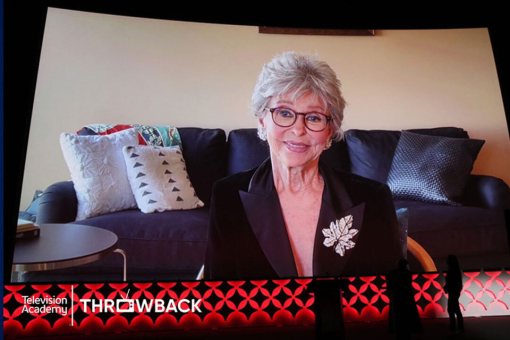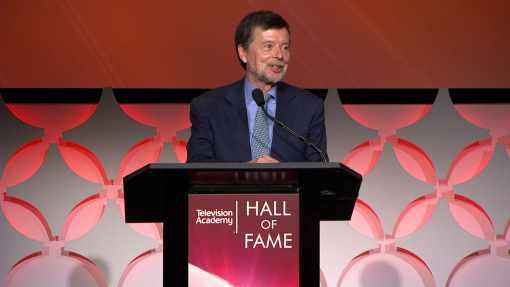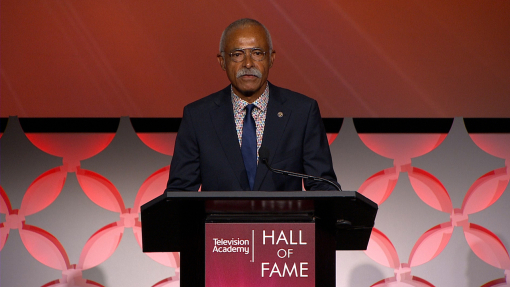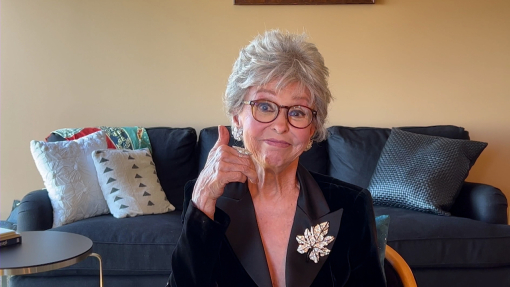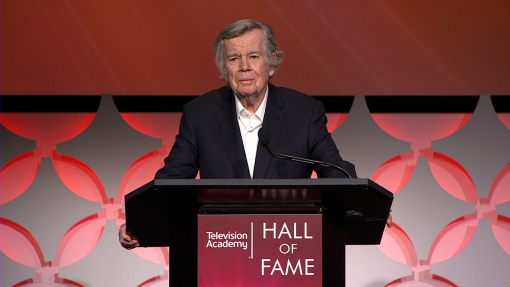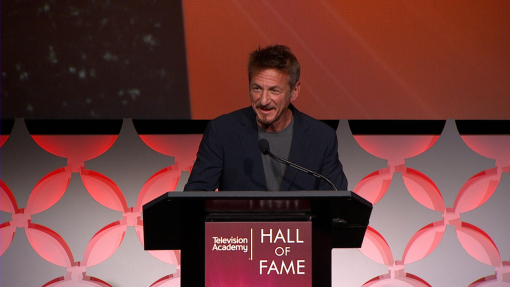“I have been reading a lot of religious books,” Red Skelton told TV Guide in June 1957. “There is a message in this somewhere. I am not yet sure just what it is, but I think it means we all have a purpose in life. I don't think anyone’s purpose is any greater than anyone else's, and I think mine is to make people laugh.”
The son of a circus clown, Red Skelton has been making people laugh since 1923, when, at the age of 10, he began taking pratfalls for a traveling medicine show in his native Indiana. Later, he made the entire nation laugh every week on The Red Skelton Show, which was broadcast on NBC and CBS from 1951 to 1971. During its 20-year run, Skelton’s show was usually rated in the top 10 and frequently in the top five. When his program was dropped by CBS in 1970, it was ranked seventh in the Nielsens.
Johnny Carson, one of Skelton’s writers during the 1953-54 season, says, “Red is an intriguing, complex personality. He is probably the last of the great physical performers, with mime and with a humor coming from burlesque. Nobody does that kind of comedy anymore. Most of it is all stand-up. He is the last of the traditional, physical burlesque clowns, playing characters and doing sketches.”
Skelton’s weekly comedy program showcased monologues, mime, satire, dance, music, comedy sketches, guest stars, and Skelton’s comic characters — including Clem Kadiddlehopper, the country bumpkin; Junior, the “mean widdle boy” (of “I dood it” fame); San Fernando Red, the con artist; Freddy the Freeloader, a hobo with taste (always done in mime); Senator Klaghorn, the Washington windbag; Cauliflower McPugg, the prizefighter; and the seagulls, Gertrude and Heathcliff. The show combined new material with the best of Skelton’s routines from burlesque, vaudeville, radio, and motion pictures.
“I always thought television would be the new hearth for the home," Skelton said recently in his Rancho Mirage office. “My show was popular because basically the whole family could watch it. It was the one evening when the whole family got together. Kids used me to stay up late. Now, when I make personal appearances, people come up to me afterward and say, ‘Thank you for my childhood.’ They say, ‘I was having a tough time, but, boy, you sure made me laugh.’ They repeat jokes they heard 30 years ago that even I have forgotten. They say after they analyze what I have said, they find it is funnier than they thought at the time.
“Television was like the movies, except you underplayed on television because you were going into people’s homes. Before I went on television I used to perform every chance I got in people's living rooms to see what they laughed at, what they thought was funny. Making the transition from radio to television wasn’t that hard because most of my jokes were visual, but I changed things to make them more visual. And I learned how to use props more.”
As his ratings and popularity soared, millions of Skelton's shared his grief when his beloved nine-year-old son, Richard, died of leukemia in 1958. “It was a devastating time for him,” Carson remembers, “He kind of withdrew. But he was able to set aside personal problems at the moments when he was performing. He could still go out and do a show. But I know it affected him very, very deeply. Red is the kind of person who is very outgoing and at the same time very withdrawn.”
David Rose, Skelton’s musical director for 23 years, says, “He never let people know his inner feelings even though we saw him day after day. We all knew, and we didn't have to ask. He went on with the show. No one did it better than he. He was the number-one trouper.”
A veteran of practically every form of entertainment, Skelton has had a career that reads like a history of 20th-century American show business. Starting in traveling medicine shows that of necessity went from town to town — quickly — Skelton soon graduated to burlesque, Mississippi River showboats, and emceeing depression-era walkathons (now popularly called dance marathons). In the 1930s, he hit vaudeville and developed an act that reportedly made him one of America’s highest-paid stage comedians. His routine featured his famous “Guzzler's Gin” sketch, in which an immaculately dressed radio announcer winds up on the floor singing the praises of the product, “a nice, smoooooooooth drink.”
So great did Skelton’s popularity become in the late ‘30s that he could count even President Franklin Roosevelt among his loyal fans. For several years Skelton performed at FDR’s White House birthday parties, even irreverently kidding the chief executive in his own home. “Careful what you drink, Mr. President,” Skelton cautioned Roosevelt during one birthday toast. “I once got rolled in a place like this.”
Like everything else he did, Skelton’s approach to putting his television show together was strictly his own. “After the dress rehearsal,” he remembers, “I would go home and listen to the audio tape of the show. Anything that got too big a laugh I took out, because if there is a big laugh and a little laugh, you have got only a couple of good jokes that the audience remembers. But if you put in jokes that get the same kinds of laughs ail the way through, then even if the whole show stinks nobody notices it. So we rewrote the script for the show and took out the biggest yuks, except a big one for the finish.”
On occasion, all the sketches on a show were in mime. "Red had Marcel Marceau on one week,” Rose remembers, "and Red won. He was the perfect clown and the perfect entertainer. He is the greatest mime ever. Whatever he does is brilliant and original.”
“I let the audience in on everything,” Skelton says. "It was a love affair between me and the audience. I said to them, ‘Let’s have fun!’ and they knew they would, because they knew I was going to let them in on the jokes.”
Peggy Gordon, assistant choreographer on the show from 1956 to 1962, remembers Skelton as having “a childlike quality with radical likes and dislikes and a puritanical streak. He was very emotional, very sentimental, and the most wonderful guy to the dancers. On Valentine's Day he would send us all nosegays. He was very thoughtful. He had a core of kindness. I worked with a lot of the biggest comics, and he was the most pleasant one.”
Currently, Skelton follows the schedule he has maintained for decades. Up at dawn, he writes a love letter to his wife, an outline for one of his short stories (which he publishes and sells privately), and music and material for the one-man show he takes to state fairs, civic auditoriums, and college stadiums across the country.
"I average about four hours’ sleep a night,” Skelton says. “I’m not a workaholic. I have enjoyed being busy since I was about 10 years old. My grandmother was 102 when she died. When she was dying we were standing around her bed, and she said, ‘Will you talk a little louder? I know I am old and I may be dying, but I still may learn something.’ Basically that has always been in the back of my mind. She said, ‘To get anywhere in this world you have got to burn the midnight oil.’ I thought that meant you had to stay up after midnight. So I got into that habit when I was a little kid. Even when I was in the Army, especially in basic training, I had a flashlight under the blanket so I could make notes.”
Johnny Carson sees Skelton’s professional longevity as a testament to his unique talents. “Anybody who is still out performing at his age, still drawing crowds, is incredible,” Carson says, “That is really the yardstick of being successful as a comedian. Red has sustained that for 60 years, and it is a tremendous accomplishment: the fact that he could go through vaudeville, radio, motion pictures, television, and night clubs and be successful.”
This tribute originally appeared in the Television Academy Hall of Fame program celebrating Red Skelton's induction in 1988.

